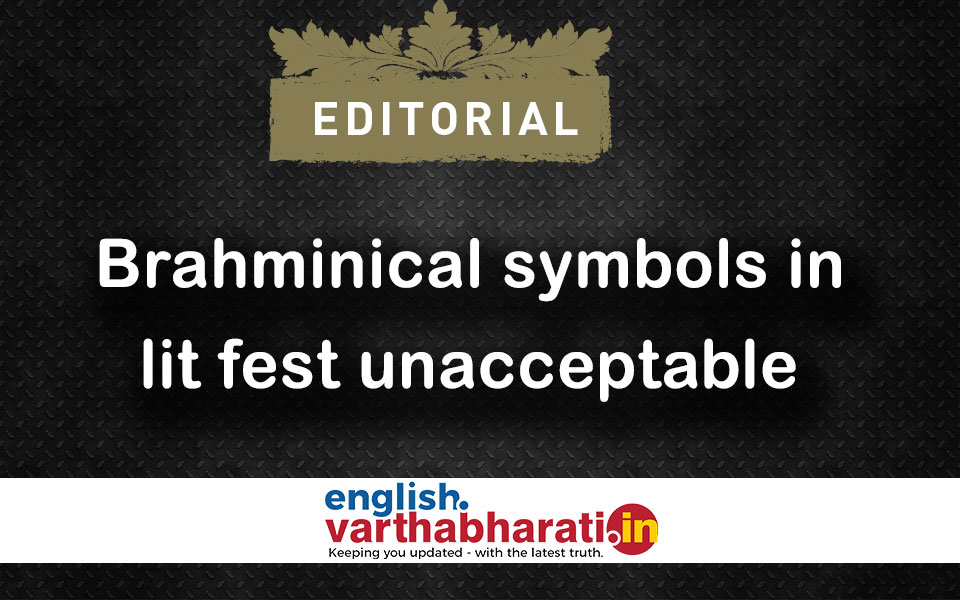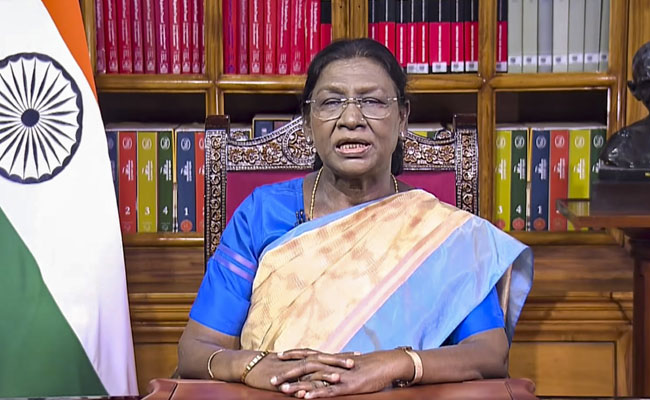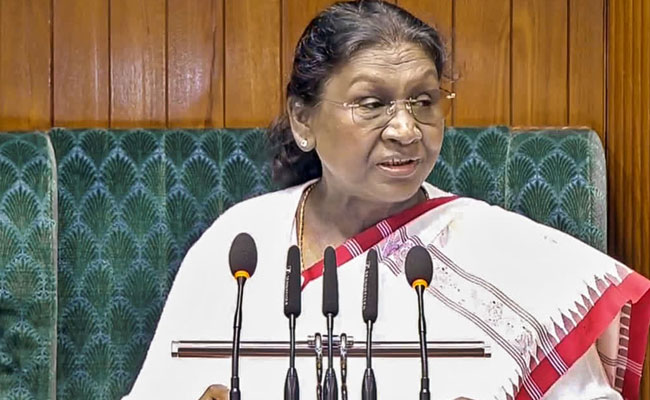A celebratory fair of Kannada has begun in Dharwad. That quaint city itself is home to many writers. Legend has it that if you throw a stone in Dharwad, it will go and land in some writer's house for sure. This goes to indicate every household in Dharwad has some writer or a poet or a lover of literature who would have dabbled with some other form of literature. Hence, this year's Akhila Bharathi Kannada Sahitya Sammelana has gained significance for many reasons.
Unfortunately though, the Sammelana is in news in the recent times for wrong reasons. Women folk and literary enthusiasts have questioned some of the primary events that lead to the Sammelana such as auspicious water pots being carried by married women to the venue of the event in a procession to welcome the guests, referred to as 'Poorna Kumbha Svagata’. Literature aims at upliftment and empowerment of every person through knowledge. Sumangali, a word referred to only married women, itself is laden with some sort of humiliation tone since it associates her right to be part of something with her husband's existence. Those who have lost their husband, are often blamed for the status that they have had no control over. Kannada literature has always been raising voice and concerns against such exploitation of women through traditions.
Known to be the first novel of Kannada, ‘Indirabai’ was about the widow issue. No other language literature has ever spoken against such ill practices surrounding widows as much as Kannada has done. Organisers of Kannada Sahitya Sammelan should have known what message Poorna Kumbha procession would send to the people of the state. After this issue stirred a huge controversy, the organisers gave a rather fleeting reply that anybody could participate in the poorna kumbha procession, and didn’t assure to remove this from the list. The very act of Poorna Kumbha itself is adhering to the celebration of patriarchy, by upholding this. This has no literary, traditional or cultural background instead of the fact that this is a deeply brahmincal practice, kept alive by the priestly class. Many objections have been raised in the past against maintaining and incorporating brahminical symbols into literary festivals.
Kannada Sahitya Parishat belongs to all Kannadigas. Anybody with any cultural background, whether agnostic or believers, can come and participate. Their single goal would be to work for the strengthening and upholding of Kannada language and its heritage to create better work for the future. The core of this is Kannada identity, and Kannada symbols. Kannada Sahitya Parishat owes it to people of celebrating Kannada through various people, since the government also generously contributes to this cause as this is tied to language. But since the last few decades, brahminical customs are slowly making way into the celebrations. A rational like Kuvempu, who criticized priestly superstitions etc had made scathing observations about keeping them out of a secular space. He had said brahminical tyranny and dictatorship had to end, if the world has to move further. His soul must be writhing in pain having seen where the Kannada cause stands now.
Literary festivals took a plunge after Harikrishna Punaruru became the chairperson. Under his leadership, the excellent organizer in him would curate wonderful events, but the soul of a literary festival lost the sheen in its ideals. The fests which would take place in the grounds adjacent to schools, started occupying massive grounds. Though Sammelanas have been held at hobli level, priests and Brahmins would occupy the core areas of these celebrations. Through this, literature was made subservient to priestly class. This Poorna Kumbha welcome by ‘Sumangalis’ is part of this subservient tradition that defeats the cause of Kannada and rationalism. In the past, to get the good attention of Kings and spiritual gurus, young women would be lined up with Kumbhas to welcome them. The intention was that by looking at the face of married women, the royal guests would be pleased. This is not a pro-human celebration.
Now when the chairperson of the Sammelana says anybody can participate in the procession of Poorna Kumbha, how does it even make the damage good when the act itself is laden with religious innuendos? Would widows join this procession just because the Sahitya Parishat Chairperson said so? If they are humiliated, will the chairperson take responsibility for this? Including the Dasara, vedic and brahminical practices are increasingly taking the centre stage defeating the norms of democracy, and celebrating monarchy. At least Kannada Sahitya should be independent of that. The car procession of the chairperson of the festival, prompting women to usher the guests, all such age old meaningless celebrations should end. The chair persons of Sammenala have to speak against these. How can a writer do better for a society if he cannot go beyond the self-glorification and think rationally? Why should the government spend crores on something that would get lost as a celebration without having to do much for the progress of Kannada?
Let the Truth be known. If you read VB and like VB, please be a VB Supporter and Help us deliver the Truth to one and all.
New Delhi (PTI): President Droupadi Murmu on Wednesday said the world saw the valour of Indian armed forces through Operation Sindoor when they destroyed terror camps on the strength of their own resources and asserted that any terror act will be responded with decisive action.
"India has proved that power can be used with responsibility and wisdom. The world has seen the valour and courage of Indian armed forces through Operation Sindoor," Murmu said in her address to both Houses of Parliament, marking the beginning of the Budget Session.
"Our nation, on the strength of our own resources, destroyed terror camps. My government sent a message that any act of terror will be responded to with resolute and decisive action," the President said, amid thumping of desks by Prime Minister Narendra Modi and other parliamentarians.
Murmu said the suspension of the Indus Water Treaty was part of India's fight against terror.
"We are also working on Mission Sudarshan Chakra to further strengthen national security," the President said, adding that security forces have also taken decisive action against Maoist terror.
Following Operation Sindoor, she said, the trust on Indian defence platforms has increased.
Murmu further said her government was committed to social justice in the country.
In the third term of the government, she said, work is being done to further empower the poor, and social security benefits are available to nearly 95 crore citizens now.
"My government is committed to true social justice," she said, adding that 25 crore Indians moved out of poverty in the last 10 years.
The President also said the government has been successful in tackling corruption and scams, and ensuring proper use of public funds.
"For India, the end of the first 25 years of this century has been filled with several successes, proud achievements and extraordinary experiences. In the last 10-11 years, India has strengthened its foundation in every sector," she said.
Lauding India's celebration of the 350th martyrdom day of the ninth Sikh guru, Guru Tegh Bahadur, and the country's tribute to revered tribal leader and freedom fighter Birsa Munda on his 150th birth anniversary, Murmu said, "when the country remembers the contribution of its ancestors, the new generation gets inspiration, which further speeds up our journey towards Viksit Bharat (Developed India)."
"The country celebrated the 350th Shaheedi Diwas of Sri Guru Tegh Bahadur Ji. During the 150th birth anniversary of Birsa Munda, the entire country paid him tribute and remembered his contribution to the tribal community," the President said.
"The events related to the 150th birth anniversary of Sardar Vallabhbhai Patel further strengthened the sense of Ek Bharat, Shresht Bharat (One India, Best India). The entire country became witness to how Bharat Ratna Bhupen Hazarika's birth anniversary celebrations filled the country with music and a sense of unity," Murmu said.
The President's mention of the Viksit Bharat – Guarantee for Rozgar and Ajeevika Mission (Gramin) (VB-G RAM G) scheme was met with loud protests from the Opposition benches.
Murmu said the VB-G RAM G initiative would provide guarantee for 125 days of work, would stop corruption and leakages, and provide a new impetus to rural development.
The Opposition members raised slogans demanding its rollback, even as the treasury benches thumped their desk in support of the scheme.
The President had to take a brief pause amid opposition cries of "vapas lo" (roll back) against the Act that replaced the Mahatma Gandhi National Rural Employment Guarantee Act (MGNREGA).
The Opposition parties have been demanding withdrawal of the VB-G RAM G Act and restoration of MGNREGA as a rights-based law in its original form, the right to work and the authority of panchayats.
The government has, meanwhile, claimed that the new Act will further strengthen the guarantee for rural employment.





